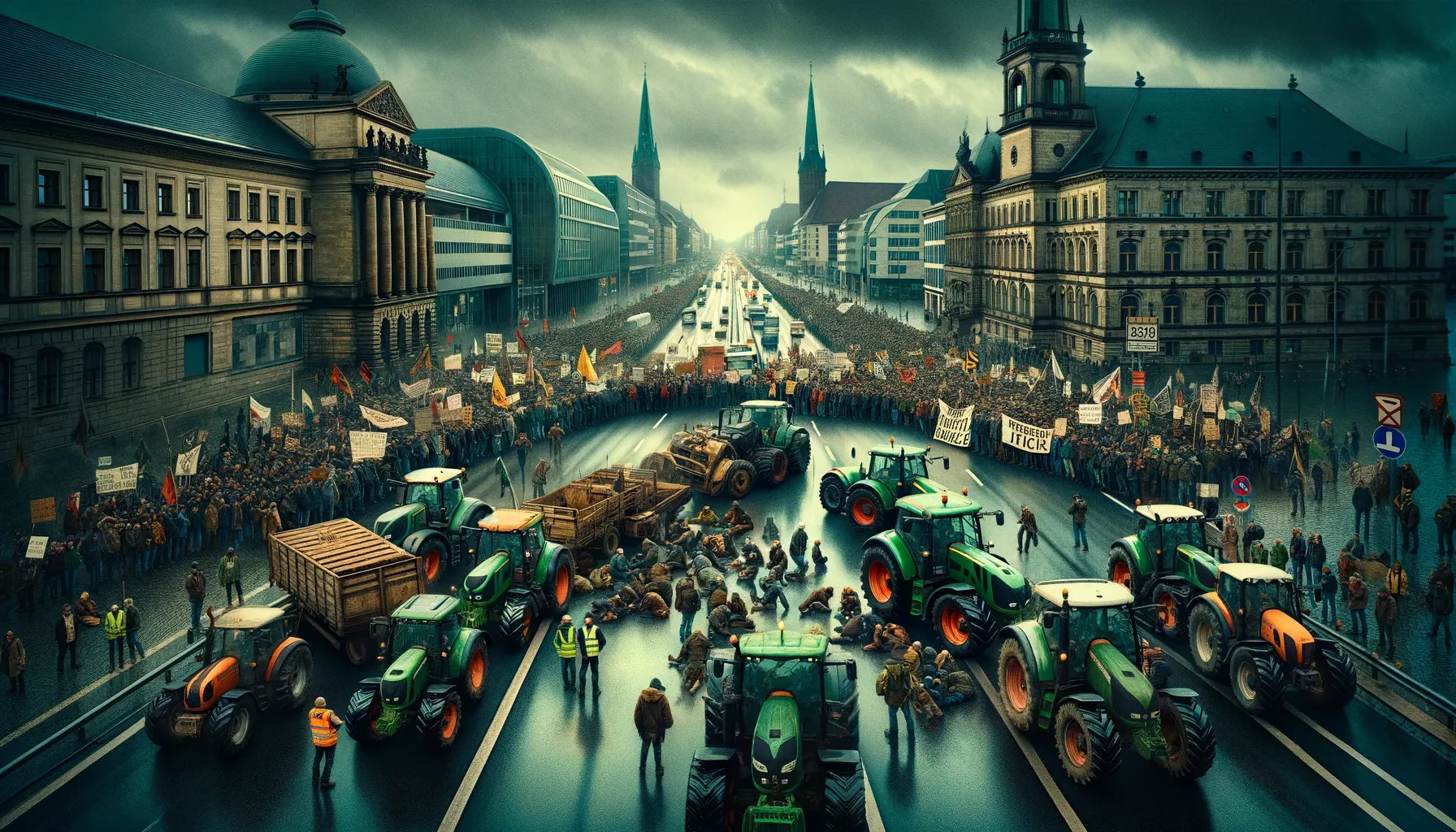Fields of Unrest: German Farmers Rise Against Subsidy Cuts
In the early hours of January 8th, a remarkable scene unfolded across Germany, marking the beginning of a week-long protest that would echo throughout the nation. German farmers, the backbone of the country's robust agricultural sector, took to the streets in a sweeping movement. This protest was not

In the early hours of January 8th, a remarkable scene unfolded across Germany, marking the beginning of a week-long protest that would echo throughout the nation. German farmers, the backbone of the country's robust agricultural sector, took to the streets in a sweeping movement. This protest was not just a mere demonstration but a powerful statement against the government's plan to phase out agricultural subsidies.
At the heart of this unrest lay the federal government's proposal to cut tax privileges for farmers. These cuts, part of a broader strategy to address the nation's budget crisis, threatened the financial stability of the agricultural community. The farmers' response was swift and decisive, leading to widespread road and highway ramp blockades, disrupting the usual flow of life in multiple cities.
The protests, planned to span from January 8th to 15th, were meticulously organized by farmers' unions. They transformed city streets into rivers of dissent, with vehicle convoys and impassioned demonstrators voicing their opposition. The movement drew attention to the critical role of subsidies in supporting the agricultural industry, vital for both the economy and food security of Germany.
The government, faced with this formidable wave of opposition, partially backtracked on its initial plans on January 4th. This concession, however, was not just a political maneuver but a testament to the power of collective action. It highlighted the farmers' ability to influence policy decisions and assert their significance in national matters.
Yet, the protests took a more intense turn in northern Germany. The farmers' frustrations culminated in a direct confrontation with Greens Economy Minister Robert Habeck. This incident, involving a blockade that prevented the minister from disembarking from a ferry, underscored the escalating tensions and the farmers' determination to be heard.
"Fields of Unrest: German Farmers Rise Against Subsidy Cuts" is not just a story about protests; it's a narrative about resilience, the fight for economic sustainability, and the crucial role of the agricultural sector in a nation's fabric. It's a tale of how a community, when pushed to the brink, can unite and wield the power of their collective voice to bring about change. As the dust settles on the streets of Germany, the impact of these protests will undoubtedly resonate for years to come, shaping the future of agricultural policies and farmer-government relations.




